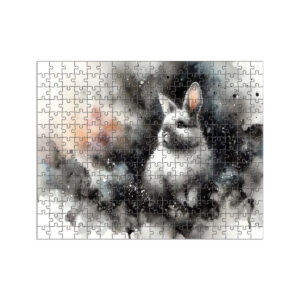
Explore & Play
Discover interesting topics and solve the accompanying crossword puzzle.
Director Crossword | Legacies of cinema’s greatest directors
Test your knowledge with our Director crossword and discover the evolution of cinema through iconic filmmakers and their groundbreaking works.
Table of Contents
Welcome to our exploration of the fascinating world of cinema! Before diving into the article, you have the option to engage with the Director crossword first, testing your knowledge of iconic filmmakers and their contributions. If you’re not yet familiar with the topic, feel free to read the article first and then return to the crossword for a fun way to reinforce what you’ve learned. Let’s get started!
Director Crossword
You can either fill in the crossword puzzle directly on this page or click the button in the bottom right corner to print it for free.

The Evolution of Cinema: Iconic Directors Who Changed the Game
Cinema has evolved dramatically over the decades, shaped by the visions of iconic directors whose unique storytelling methods and styles have left an indelible mark on the film industry. In this article, we will explore influential filmmakers from around the world, delving into their contributions, techniques, and the cultural impact of their works. Along the way, we will reference a crossword puzzle featuring these directors and key terms related to their films.
I. The Early Innovators of Film
The roots of cinema can be traced back to early pioneers whose innovative approaches laid the groundwork for future filmmakers. These visionary artists experimented with new techniques and narratives that would shape the art of storytelling for generations.A. Georges Méliès
Georges Méliès, often hailed as the father of special effects, captivated audiences with his imaginative storytelling. His film A Trip to the Moon showcased groundbreaking techniques, including multiple exposures and hand-painted color, that brought fantastical worlds to life. Méliès’s ability to blend magic and narrative laid the foundation for fantasy films, influencing countless directors who followed.B. D.W. Griffith
D.W. Griffith is renowned for his pioneering work in narrative structure and editing techniques. His film The Birth of a Nation introduced innovative cinematic techniques such as cross-cutting and close-ups, revolutionizing how stories were told on screen. While his legacy is complex and often criticized for its controversial themes, Griffith’s impact on film language is undeniable, setting a precedent for future filmmakers to explore complex narratives.II. The Golden Age of Hollywood
As cinema blossomed into a global phenomenon, a new wave of directors emerged, each leaving their unique imprint on the industry. The Golden Age of Hollywood was characterized by lavish productions and a focus on star power, yet it also gave rise to directors who pushed creative boundaries.A. Alfred Hitchcock
Alfred Hitchcock, the master of suspense, captivated audiences with his psychological thrillers. In films like Psycho, he skillfully manipulated tension and employed groundbreaking techniques, such as the infamous shower scene, to create unforgettable cinematic moments. Hitchcock’s meticulous attention to detail and innovative storytelling have inspired countless filmmakers, establishing him as a lasting icon in the world of cinema.B. Frank Capra
Frank Capra epitomized the American spirit through his uplifting narratives. Films like It’s a Wonderful Life resonated with audiences, showcasing themes of hope and community. Capra’s ability to connect with viewers on an emotional level solidified his reputation as a beloved storyteller. His work often highlighted the triumph of the human spirit, making him a key figure in the Golden Age of Hollywood.III. International Cinema: A Global Perspective
The film industry is a tapestry of diverse voices, with directors from around the world bringing unique cultural narratives to the forefront. International cinema has enriched the art form, offering fresh perspectives that resonate with global audiences.A. Akira Kurosawa
Akira Kurosawa is celebrated for his influence on both Japanese and world cinema. His film Seven Samurai not only introduced compelling characters and intricate plots but also inspired countless remakes and adaptations worldwide. Kurosawa’s storytelling techniques, including his use of weather and landscape to enhance emotional depth, have left a profound impact on filmmakers across cultures.B. Satyajit Ray
Satyajit Ray’s poignant storytelling explored the complexities of life in India, earning him recognition as one of the greatest filmmakers of all time. His film Pather Panchali offered a raw and humanistic portrayal of rural life, emphasizing social issues and the struggles of the common man. Ray’s artistry and commitment to authenticity continue to inspire directors globally, showcasing the power of film as a medium for social commentary.IV. The Rise of New Wave Directors
In the 1960s and 70s, a wave of innovative filmmakers broke conventional norms, revolutionizing cinematic language. These directors challenged traditional storytelling methods, introducing new aesthetics and themes.A. François Truffaut
François Truffaut, a key figure in the French New Wave, redefined the relationship between director and audience. His film The 400 Blows is a semi-autobiographical tale that captures the struggles of adolescence with raw honesty. Truffaut’s use of naturalistic dialogue and innovative editing techniques influenced a generation of filmmakers, proving that personal stories could resonate on a universal level.B. Martin Scorsese
Martin Scorsese emerged as a powerhouse in American cinema, particularly in the realm of crime dramas. His film Goodfellas is a masterclass in storytelling, blending realism with stylistic flair. Scorsese’s ability to portray the gritty underbelly of society while exploring complex characters has set a high standard for filmmakers in the genre, earning him a place among cinema’s greats.V. The Diverse Voices of Modern Filmmaking
Contemporary cinema is characterized by a diverse range of voices, reflecting a multitude of experiences and perspectives. This era has seen an influx of talented directors who challenge norms and bring fresh narratives to the screen.A. Greta Gerwig
Greta Gerwig’s directorial debut with Lady Bird showcased her talent for crafting relatable, character-driven stories. The film, which explores the tumultuous relationship between a mother and daughter, resonates with audiences through its authenticity and humor. Gerwig’s work exemplifies the importance of female perspectives in filmmaking, paving the way for future women directors.B. Bong Joon-ho
Bong Joon-ho has garnered acclaim for his ability to blend genres seamlessly. His film Parasite masterfully combines elements of thriller, drama, and dark comedy, delivering a powerful commentary on class disparity. Bong’s unique storytelling style and visual prowess have not only captivated audiences but also redefined the possibilities of modern cinema.VI. The Power of Animation
Animation has become a vital part of the cinematic landscape, with directors pushing the boundaries of storytelling through artistry. This genre has evolved to encompass a wide range of themes and styles, captivating audiences of all ages.A. Hayao Miyazaki
Hayao Miyazaki is synonymous with enchanting narratives that transcend cultural boundaries. His film Spirited Away won the Academy Award for Best Animated Feature and is celebrated for its rich storytelling and stunning visuals. Miyazaki’s ability to weave fantasy and reality has inspired a generation of animators, showcasing the profound emotional impact of animated storytelling.B. Pixar Directors
Pixar has revolutionized animation with its emphasis on storytelling and character development. Directors like Andrew Stanton and Pete Docter have crafted beloved films such as Finding Nemo and Inside Out, blending humor with deep emotional themes. Pixar’s commitment to innovation and excellence continues to shape the animation industry, setting a high standard for filmmakers worldwide.VII. The Influence of Technology on Direction
Advancements in technology have opened new avenues for filmmakers, allowing them to craft visually stunning and narratively complex stories. Modern directors harness these tools to enhance their storytelling techniques, pushing the boundaries of what cinema can achieve.A. James Cameron
James Cameron is known for his ambitious projects that push technological boundaries. With films like Avatar, he pioneered groundbreaking visual effects and 3D technology, creating immersive cinematic experiences. Cameron’s dedication to innovation has not only elevated the art of filmmaking but has also redefined audience expectations for blockbuster films.B. Denis Villeneuve
Denis Villeneuve has emerged as a prominent voice in modern sci-fi filmmaking, particularly with Dune. His meticulous attention to detail and stunning visual compositions create an immersive experience that captivates viewers. Villeneuve’s approach to storytelling, coupled with his use of cutting-edge technology, exemplifies the potential of contemporary cinema.VIII. The Feminine Perspective in Film Direction
Women directors are increasingly taking the helm, bringing fresh perspectives and narratives to the forefront of cinema. Their contributions are reshaping the landscape of filmmaking, allowing for a more inclusive representation of diverse stories.A. Jane Campion
Jane Campion’s exploration of complex emotional themes in films like The Piano showcases her mastery of storytelling. She delves into the intricacies of relationships and gender dynamics, earning critical acclaim and numerous awards. Campion’s work has paved the way for future female filmmakers, highlighting the importance of women’s voices in the industry.B. Ava DuVernay
Ava DuVernay has made significant strides in promoting representation and diversity in film. With films like Selma, she addresses crucial social issues while delivering powerful narratives. DuVernay’s commitment to amplifying marginalized voices and stories has positioned her as a key figure in contemporary cinema, inspiring a new generation of filmmakers.IX. The Legacy of Iconic Directors
The legacy of these directors continues to resonate, influencing a new generation of filmmakers and shaping the future of cinema. Their innovative approaches and compelling narratives have left an indelible mark on the industry, ensuring their stories endure through time.A. Coen Brothers
The Coen Brothers are known for their unique storytelling style that combines dark humor and intricate plots. Films like Fargo showcase their ability to blend genres and create memorable characters. Their influence on independent cinema has been profound, encouraging filmmakers to embrace originality and experimentation in their work.B. Tim Burton
Tim Burton’s distinctive gothic aesthetic and imaginative storytelling have garnered a dedicated fanbase. With films like Edward Scissorhands, he explores themes of isolation and individuality through a fantastical lens. Burton’s whimsical yet dark approach to filmmaking has inspired a host of directors to embrace unconventional narratives and styles.A Lasting Influence on Cinema
As we reflect on the evolution of cinema, it becomes clear that the contributions of these iconic directors have not only shaped the industry but also enriched our cultural landscape. Their innovative storytelling techniques, diverse perspectives, and commitment to authenticity have paved the way for future generations of filmmakers. Explore the crossword puzzle featured in this article to test your knowledge of these influential directors and their remarkable films!Share to...
Thank you for reading 👋
I hope you enjoy the content.
I hope you enjoy the content.
Want to receive our daily crossword puzzle or article? Subscribe!
You may also be interested in
Share to…
Want to receive our daily crossword puzzle?
-
Jigsaw Puzzles
Chinese Zodiac Rabbit Jigsaw Puzzle – Ink Art Series 250 | 300 | 500 Pieces
kr 348,00 – kr 439,00Price range: kr 348,00 through kr 439,00 Select options This product has multiple variants. The options may be chosen on the product page -
Jigsaw Puzzles
Cozy Art Nouveau Cat Puzzle 250 | 300 | 500 Pieces
kr 348,00 – kr 439,00Price range: kr 348,00 through kr 439,00 Select options This product has multiple variants. The options may be chosen on the product page -
Jigsaw Puzzles
Vigeland Park Fantasy Puzzle 250 | 300 | 500 Pieces
kr 348,00 – kr 439,00Price range: kr 348,00 through kr 439,00 Select options This product has multiple variants. The options may be chosen on the product page

















